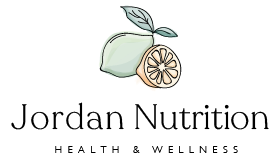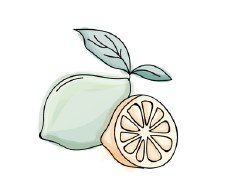Iodine: The Forgotten Nutrient of Pregnancy & Breastfeeding
The Missing Link For Pregnancy Health
Most of us have heard about the importance of folic acid during pregnancy – this is a type of B Vitamin that has been shown to significantly reduce the risk of neural tube defects. But did you know that iodine is also important during pregnancy?
Why do we need Iodine in general?
Largely overlooked in the mass media, iodine is a nutrient required for normal thyroid function. Your thyroid is a small, butterfly-shaped gland situated at the base of the front of your neck. It produces a lot of important hormones that influence our metabolism including triiodothyronine (T3) and thyroxine (T4). These hormones allow the body to generate energy and support brain, heart and muscle function, among other things. Deficiency can lead to enlargement of the thyroid gland, hypothyroidism, and intellectual impairment in children
Why is iodine important during pregnancy and breastfeeding?
The Recommended Daily Allowance (RDA) for iodine increases from 150 to 220 mcg/day during pregnancy and 290 μg iodine per day for breastfeeding women. As a benchmark, one teaspoon of iodized salt contains approximately 400 μg iodine.
According to health surveys, even though no overt signs may be present, many pregnant US women are not consuming enough iodine in their diets. Studies show that iodine is required during pregnancy to support skeletal and central nervous system development in the fetus. Deficiency can increase the risk of preterm delivery, miscarriages, stillbirths, congenital abnormalities and lower intellectual abilities.
Who is at risk of iodine deficiency?
Aside from pregnant women, vegans and those who eat few or no dairy products, seafood or eggs are at increased risk for deficiency. Additionally, people that consume large amount of goitrogens (these are foods that interfere with the uptake of iodine in the thyroid) could also be at increased risk of deficiency. Examples of goitrogens include soy, cassava, and cruciferous vegetables (e.g., cabbage, broccoli, and cauliflower).
Iodine Rich Food Sources
Much of our daily iodine supply comes from plants that are grown in iodine rich soils and seafood. Other dietary sources include:
· Grains
· Dairy products: Milk is a particularly good source, not because it naturally contains iodine, but because in most developed countries, milk is processed in large containers that are cleaned with iodine containing disinfectants. While this may sound unsanitary, according to experts, receiving iodine in this way is perfectly healthy.
· Iodized salt
· Seaweed, nori
· Seafood: Especially cod, oyster, and shrimp
For those that don’t consume the above foods regularly, most multivitamins contain iodine which is usually present as potassium iodide or sodium iodide
What Else Your Need to Know
The amount of iodine in food is not listed on the food label in the US which makes it difficult to identify sources. Fortunately, iodine deficiency is rare in the US due to the introduction of iodized salt. However, in other countries that have a limited food supply or are in mountainous areas without iodine rich soils, many people suffer from iodine deficiency.


